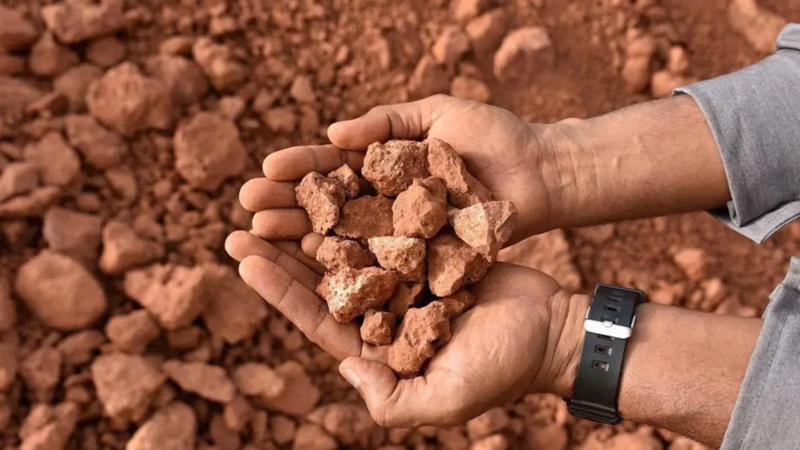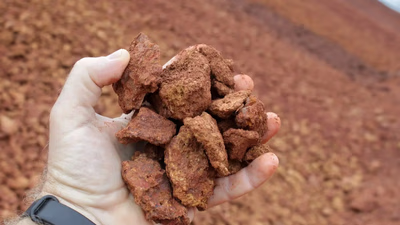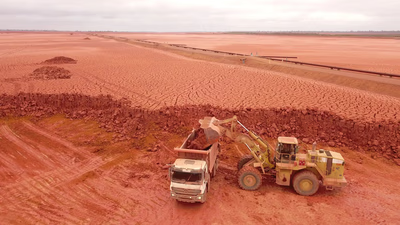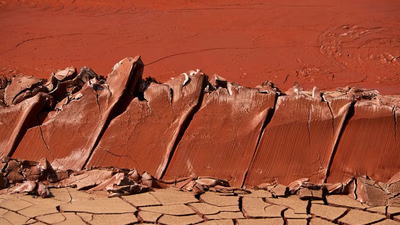
Bauxite mining sites in Saudi Arabia showcase regional resources.
Saudi Arabia has the largest bauxite mines in the Middle East . Al-Zubaira region in the northeast of the country is known as one of the largest bauxite deposits in the world. The number and size of bauxite mines in each region depends on various factors. The Middle East is a region with a long and complicated geographical history. Some areas of this region, such as the Arabian Desert, the Zagros Mountains, and the Alborz Mountains, are less known as bauxite sources. This may be due to the lack of geographical and geological conditions required for the formation of bauxite deposits in these areas.
Bauxite mining and processing requires significant investment and advanced technology. In some countries of the Middle East, the focus has been on other industries such as oil and gas, petrochemicals and steelmaking, and not enough investment has been made in the bauxite industry. The lack of bauxite mines in the Middle East can be related to geographical, historical, economic and political factors. However, there are still bauxite resources in this region, and some countries may pay more attention to the extraction and processing of these resources in the future.
Considering the geological conditions of the Middle East countries, the expectation of finding large bauxite mines in these countries is relatively less. But it should be noted that the science of geology is complex and dynamic, and new discoveries may always be made. As a result, there is always the possibility of large bauxite mines in the area, but it is less likely. Bauxite, as an aluminum rock, needs special conditions to form deposits. Some of the conditions required for the formation of bauxite deposits are the presence of igneous and carbonate rocks, long-term changes in weather conditions, the presence of water and sedimentary sources, and changes in geographical and tectonic conditions.
Some countries in the Middle East may have suitable geological conditions for the formation of bauxite deposits. For example, mountainous areas and Zagros mountains in Iran and Oman, which have diverse geological conditions, can have the potential for bauxite mines. Also, more detailed geological research and the use of advanced technologies can help identify and extract bauxite mines in these areas. It is possible that there are large bauxite mines in the Middle East countries, but more detailed geological research and field investigations are needed to confirm these claims.
Large countries in the Middle East such as Iran, Turkey and Egypt supply bauxite by importing from other countries to meet their needs. These countries can import bauxite from other sources such as Australia, Guinea, China, India and Brazil. Some countries may consider cooperation with foreign partners to supply bauxite. This cooperation can include concluding long-term contracts for the supply of bauxite ore, investing in bauxite mining and processing industries in other countries, or forming joint partnerships with international companies.
Although Middle Eastern countries may not have large bauxite reserves, they still have smaller resources within their own countries. Some of these countries are able to use their own domestic resources and extract bauxite, although in smaller quantities than they need. Some countries may try to discover and mine new sources of bauxite within their country. This includes more detailed geological investigations, field surveys and the use of advanced technologies.
The countries of the Middle East use import methods, cooperation with foreign partners and exploitation of domestic resources to supply their bauxite. Also, the development of new sources can also play a role in the supply of bauxite in these countries in the future. The Middle East is a region that has diverse natural resources, including oil and natural gas. Due to the focus on exploiting these rich energy sources, less attention has been paid to the extraction of bauxite and other mineral resources. Some countries in the Middle East, instead of extracting bauxite independently, tend to supply bauxite from other regions through export and import. This may be due to economic, commercial and contractual factors.



